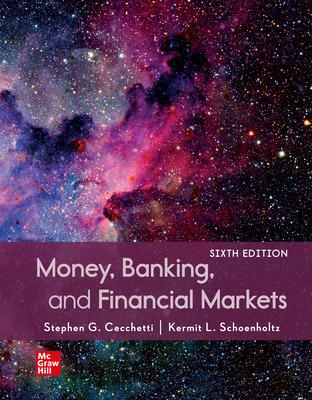Question
General Energy Storage Systems: How Much Debt and How Much Equity?General Energy Storage Systems (GESS) was founded in 2002 by Ian Redoks, a Ph.D. candidate
General Energy Storage Systems: How Much Debt and How Much Equity?General Energy Storage Systems (GESS) was founded in 2002 by Ian Redoks, a Ph.D. candidate in physics who was interested in "outside-the-box" solutions to the problem of storing electrical energy. Redoks had obtained several patents with potential applications for plug-in hybrid cars, off-grid home electrical systems, and large-scale storage of commercial electricity, produced by conventional means from excess capacity at off-peak hours or from non-fossil-fuel sources such as solar power and wind power.
The timeliness of Redoks's research has quickly attracted investors. For example, GESS has won contracts from an automobile company to manufacture batteries for a limited-production plug-in hybrid. It is also ready to begin commercial production of storage components for off-grid home electrical systems. More product means more storage space, however. To acquire the necessary manufacturing facilities, GESS needs to obtain additional financing.
Up to this point, GESS's primary source of funds has been from the sale of stock. The company is entirely equity-financed except for current liabilities incurred in the course of day-to-day operations. There are 200,000 shares outstanding, which are mostly owned by large, diverse technology companies that may wish to partner with or even acquire GESS at some point in the future. The shares trade occasionally in the NASDAQ over-the-counter market at an average price of $21.50. The investment bankers who placed the stock have suggested that an all-debt plan would minimize taxes, but it would be risky and leave little room for future borrowing. Instead, they recommend staying close to the industry averages for debt-to-assets and debt-to-equity ratios. They have proposed two alternative plans:
a.Plan A calls for $2,150,000 of new equity
(100,000 new shares at the firm's current stock price of approximately $21.50) and $4,300,000 of privately placed debt at 8.9%.
b.Plan B calls for 4,300,000 of new equity 200,000 new shares at the current stock price of $21.50) and $2,150,000 of privately placed debt at 8.4%. Under either plan, GESS's combined state and federal marginal tax rate will be 40%.
Questions
1.Why should GESS expect to pay a higher rate of interest if it borrows 4,300,000 rather than $2,150,000?
2.Estimate earnings per share for plan A and plan B at EBIT levels of $800,000, $1,000,000,
and $1,200,000.
3.How do taxes affect your findings in Question 2? By how much would the value of GESS increase or decrease as a result of choosing plan A or plan B?
4.At what level of EBIT would EPS be the same under either plan?
5.Suppose GESS's management is fairly confident the EBIT will be at least $1,000,000. Which plan would the firm be more likely to choose?
6.Assume GESS has no internal sources of financing and does not pay dividends. Under these conditions, would the pecking order hypothesis influence the decision to use plan A or plan B?
7.We assumed the decision to use more or less debt did not change the price of the stock. Under real life conditions, how would the decision be likely to affect the stock price at first, and later, if management's optimism turned out to be justified?
8.Challenge question.What if 40% of GESS's stock was owned by a large pharmaceutical company and this company also purchased 40% of the privately placed debt? Would this situation influence the decision to use plan A or plan B?
Step by Step Solution
There are 3 Steps involved in it
Step: 1

Get Instant Access to Expert-Tailored Solutions
See step-by-step solutions with expert insights and AI powered tools for academic success
Step: 2

Step: 3

Ace Your Homework with AI
Get the answers you need in no time with our AI-driven, step-by-step assistance
Get Started


